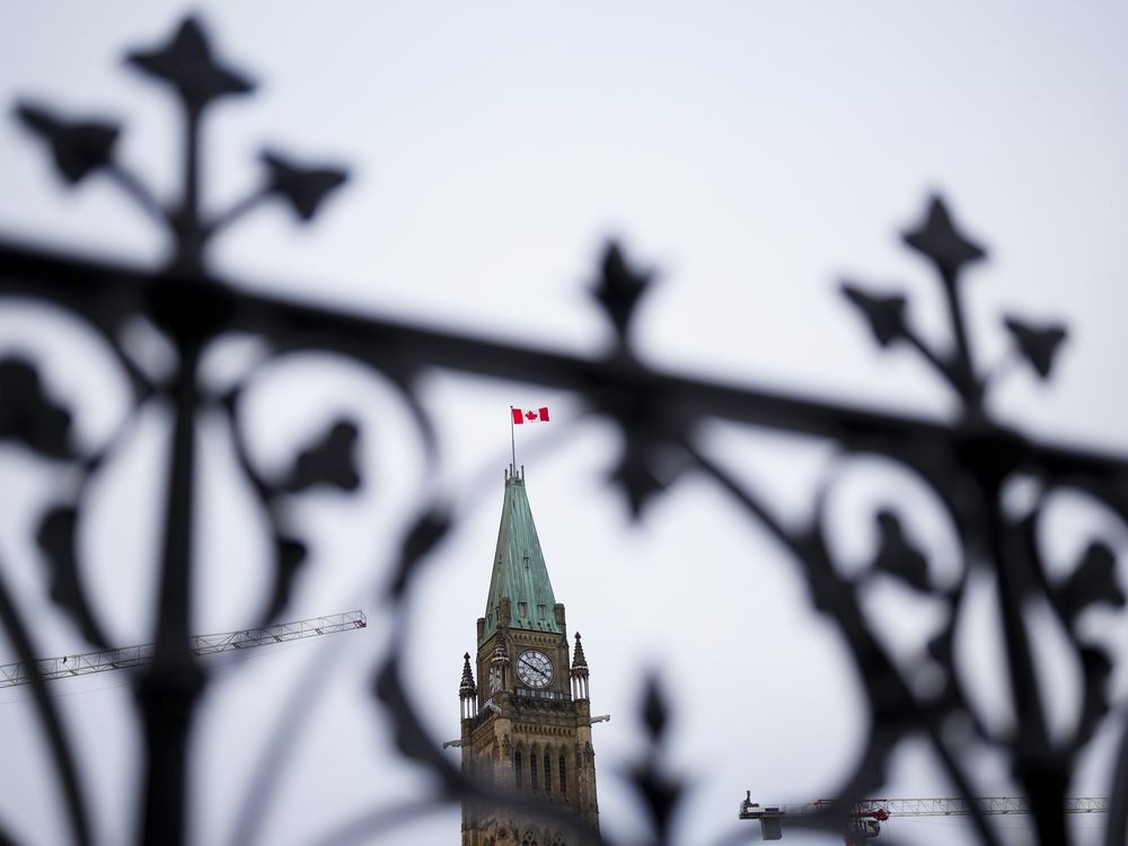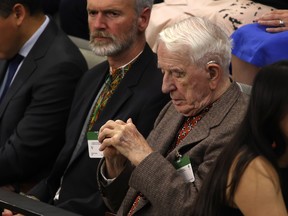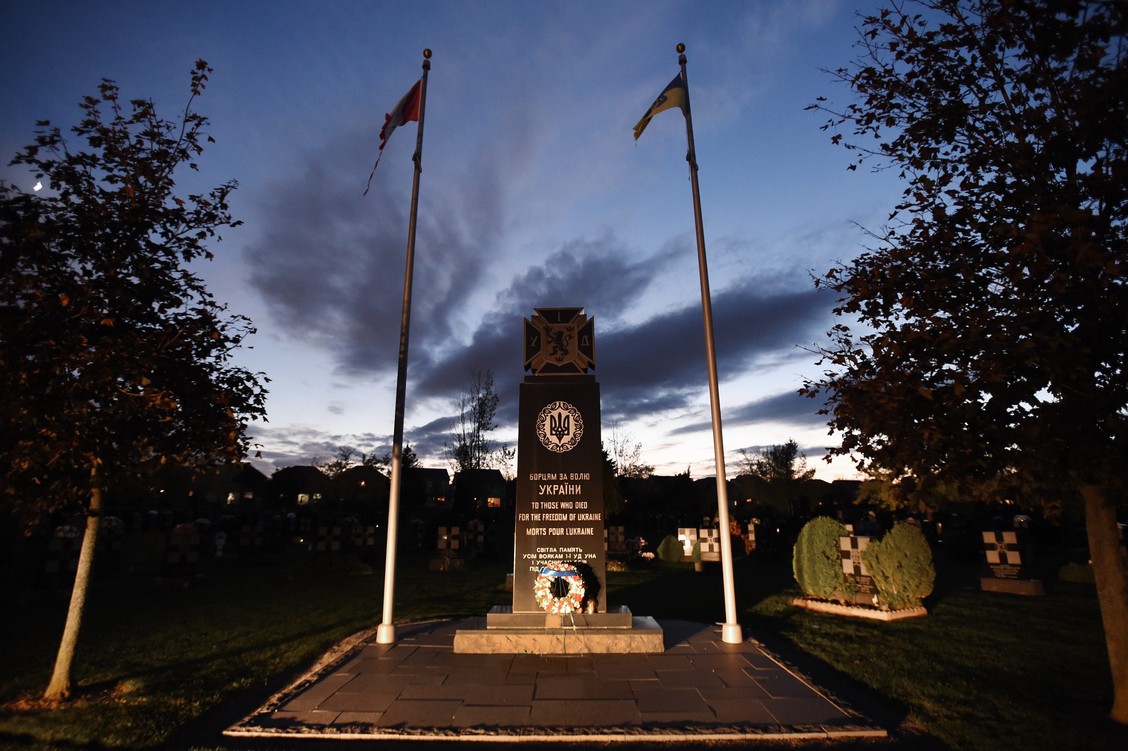The Privacy Rights of Mass Murderers
"The report provides insight into Canada's shameful history of admitting many former Nazis and their collaborators to the country, almost all of whom lived out their lives in Canada undisturbed, without ever having to face justice."Friends of Simon Wiesenthal Center"The applicant's obligation is to satisfy the court that he is of good character. He is not required to satisfy the court that he, at no time in his past, committed an opprobrious act.""[While I can appreciate the concern of Jewish Canadians relating to inaction on the presence of war criminals in Canada] it appears to me, on the other hand that it would be most ill-advised for the government to undertake this venture [removal of citizenship from war criminals]."(Former) Justice Minister Pierre Elliott Trudeau (1967)
 |
Canada
distinguished itself for posterity during the years of the Second World
War when it, along with the United States and most other Western
nations declined an opportunity to save European Jews from
extermination. It became well known that the Third Reich had established
a priority program to rid the world of Jews, and it began the
industrialized process of that institutional extermination with the Jews
who had lived for centuries in WWII German-occupied Europe. When
Germany in its early stages invited Jews to leave, there was no welcome
extended to them elsewhere.
“Canada is where the Nazis are. Canada is the unknown haven for Nazis. Everybody knows about Argentina, but nobody knows about Canada.”War crimes investigator and private detective Steven Rambam. 1977
Canada's
attitude at the time under Prime Minister William Lyon Mackenzie King
was influenced by his immigration minister, a staunch antisemite,
Frederick Blair, who opposed and strictly limited Jewish immigration to
Canada was clear. Mackenzie King was pleased to agree. And so was born
the legend: 'One is too many'. Post-war,
German Nazis fled the record of their past performance under Hitler's
rule, hastily leaving for South America in preference to standing trial
for their crimes. Canada's quiet motto then might have been 'More would be fine'.
Canada
became notorious for its laissez-faire attitude on admitting Nazi war
criminals. Recently, a 40-year-old report was newly declassified --
revealing the manner in which Canada handled Nazi war criminals.
Canadian bureaucrats, it seemed, understood at the time that politics,
not legal positions drove decisions on the harbouring of war criminals.
The case of one such criminal stood out as an example, one that former
Prime Minister Pierre Trudeau was engaged with.
A
decision was made in 1967 not to extradite a man who had been convicted
in the Soviet Union of Nazi war crimes. The revocation of his
citizenship and expelling him to the country which found him guilty in
absentia failed to materialize, based on advice from Pierre Trudeau,
then-minister justice, when the minister of external affairs asked for
his advice relating to a man identified only as 'Subject F' in the
documents.
The
1985 Commission of Inquiry on War Criminals in Canada in a version of
historian Alti Rodal's report had deleted mention of Mr. Trudeau's
involvement in the case until 15 additional pages from the report were
released by the present Liberal government, pressed to do so by B'nai
Brith Canada and other Jewish groups which had been requesting that be
done for decades. B'nai Brith and the Simon Wiesenthal Center renewed
the request following an incident in the House of Commons.
On
that occasion, when Ukrainian Prime Minister Volodymyr Zelenskyy was
to address Parliament, a Ukrainian war veteran had been invited as a
special guest to meet Zelenskyy. Parliamentarians recognized the man's
presence with enthusiastic applause. Only later was it discovered to
their shame and embarrassment, that the elderly Ukrainian had been one
of many volunteers who fought for a Nazi Waffen SS unit in Ukraine. At a
time when Ukraine viewed Russia, then an ally of the West, as the enemy
and Germany as their saviour.
 |
Prime
Minister Justin Trudeau stated the release of additional documents was
made on the decision to balance public interest with privacy. "I
think people understand that this is both an important part of the
historical record, but also one that has implications around privacy,
around community". Unsaid is the reality that within
the Canadian-Ukrainian community there are those who venerate the memory
of Ukrainians who fought against the Soviets, preferring to cast their
lot with Nazi Germany. That is seen in the controversy over the
newly-completed, not-yet opened memorial to 'victims of Communism'.
Where
names and groups are memorialized, some honoured within the Ukrainian
community, but known to be Nazi collaborators; those whose voluntary
inclusion in SS units, did not preclude them from murdering Jews and
others whom the Third Reich targeted for extermination. The
newly-released pages of the report show that the current prime
minister's father Pierre Trudeau said Canada should not revoke Subject
F's citizenship, when he was asked for his opinion in 1967.
 |
| This is a cenotaph at Oakville, Ont.’s St. Volodymyr Ukrainian Cemetery honouring the Galician Division, which it refers to as the First Ukrainian Division, Ukrainian National Army. It’s one of two monuments in Canada (the other one is in Edmonton) paying homage to a division of the Waffen-SS. Photo by Peter J. Thompson/National Post |
There
was no evidence, said Pierre Trudeau, that the citizenship court that
handled Subject F's application ever asked about the crimes, nor was
there evidence that he knowingly concealed that information. Both can
certainly be inferred, however, since to reveal such information would
have disqualified the subject's application. Nothing in the Citizenship
Act required Subject F to confess the evil deeds he was involved in,
reiterated the elder Trudeau.
There
are times when political devices are downright immoral, and this was
one of those times. Historian Rodal characterized Trudeau's logic as "highly abstract and contrived",
since Subject F had been accused of direct participation in the deaths
of thousands of people. A naturalized Canadian, Subject F immigrated
from Latvia, convicted in absentia by the Soviet Union in 1965, the case
identifying him as the "captain of a firing squad which murdered, 5,128 Jews" in Latvia during the Second World War.
Publicly
accusing a Canadian citizen, said Trudeau Sr., convicted in absentia in
Russia would strike fear into the heart of any naturalized Canadian,
that something they were involved with in their past could become a
reason for the government to revoke their citizenship. In actual fact,
falsely attesting on a citizenship application or failing to include
evidence that can be incriminating is in and of itself grounds for
revocation. With Pierre Trudeau's intervention, the government reached
the conclusion it could do nothing respecting the allegations against
Subject F.
However,
soon afterward, lawyers at the Department of External Affairs expressed
their displeasure with the decision in a memorandum, wanting to have it
reviewed on the basis it was not made for legal reasons, but for
political ones. The unredacted pages show that External Affairs believed
that requests from Czechoslovakia and the Soviet Union to extradite
four accused or convicted war criminals had been political, designed to
embarrass Canada. Even so, they believed the four named were very likely
"guilty of having committed atrocities".
_800_568_90.jpg) |
| Volunteers of the 14th Waffen Grenadier Division of the SS are sworn in, 1943. As many as 2,000 members of the unit arrived in Canada in the 1950s. Photo courtesy the National Digital Archives of Poland |
"In purely legal terms, it is arguable that the government is free to commence revocation proceedings under the Citizenship Act, notwithstanding the Attorney General's opinion.""It appears to us that the government's decision not to do so is a matter of policy rather than law.""[Subject F stood out for having been] an ardent Nazi lackey, not only co-operating actively with the occupying German forces but actually serving their Jewish and Gypsy extermination squads."Canada's (then) External Affairs Department
Labels: Canada's Shameful History, Canadian Immigration, Home-Free for WWII Nazis, Pierre Elliott Trudeau

<< Home